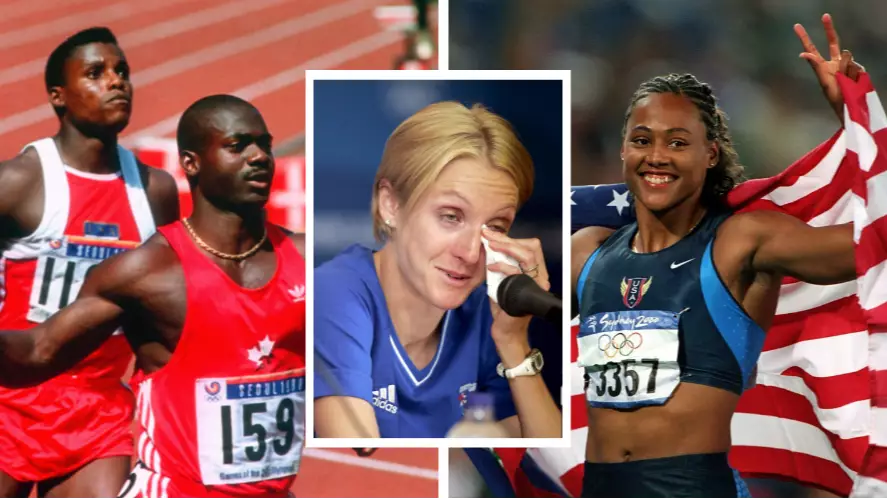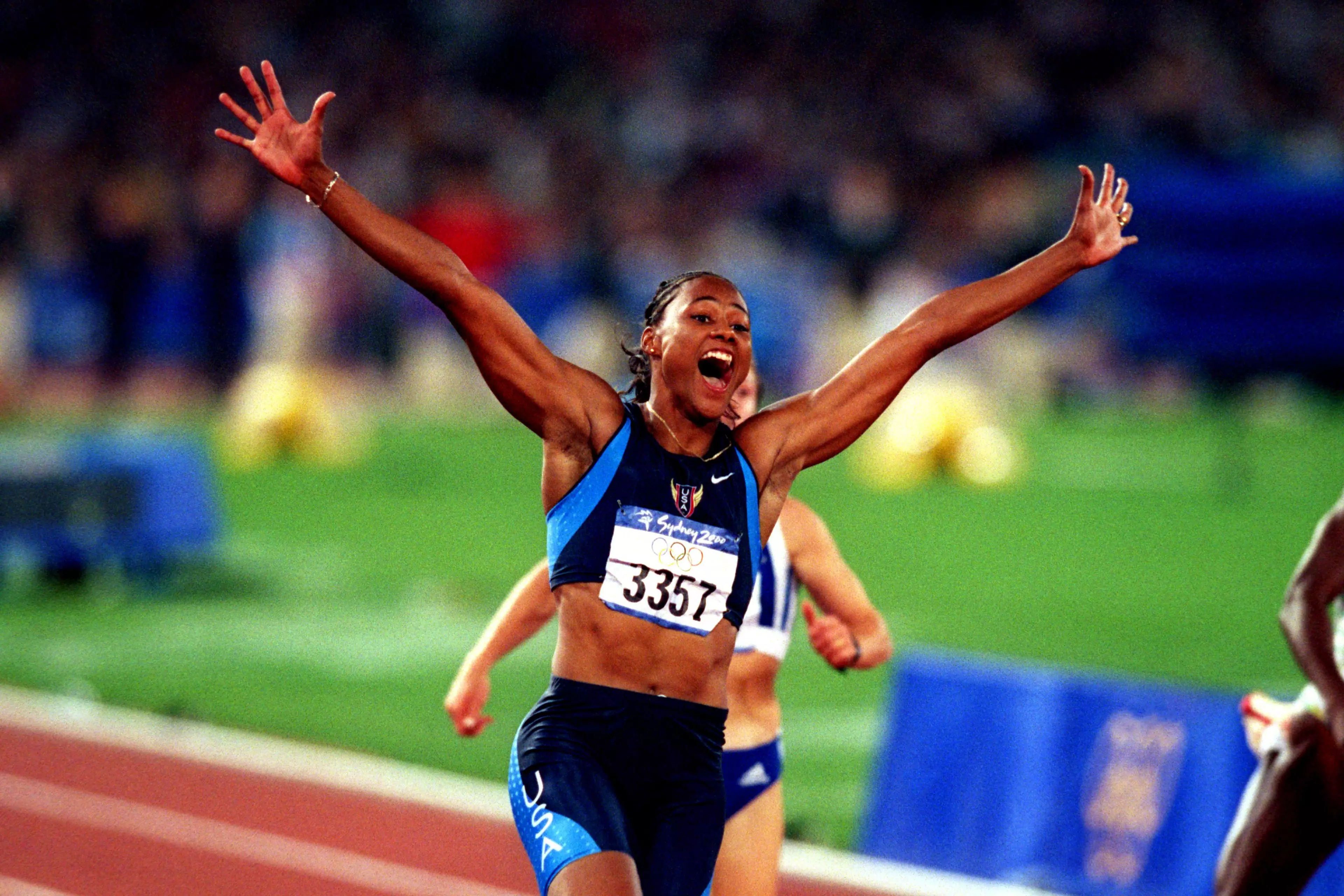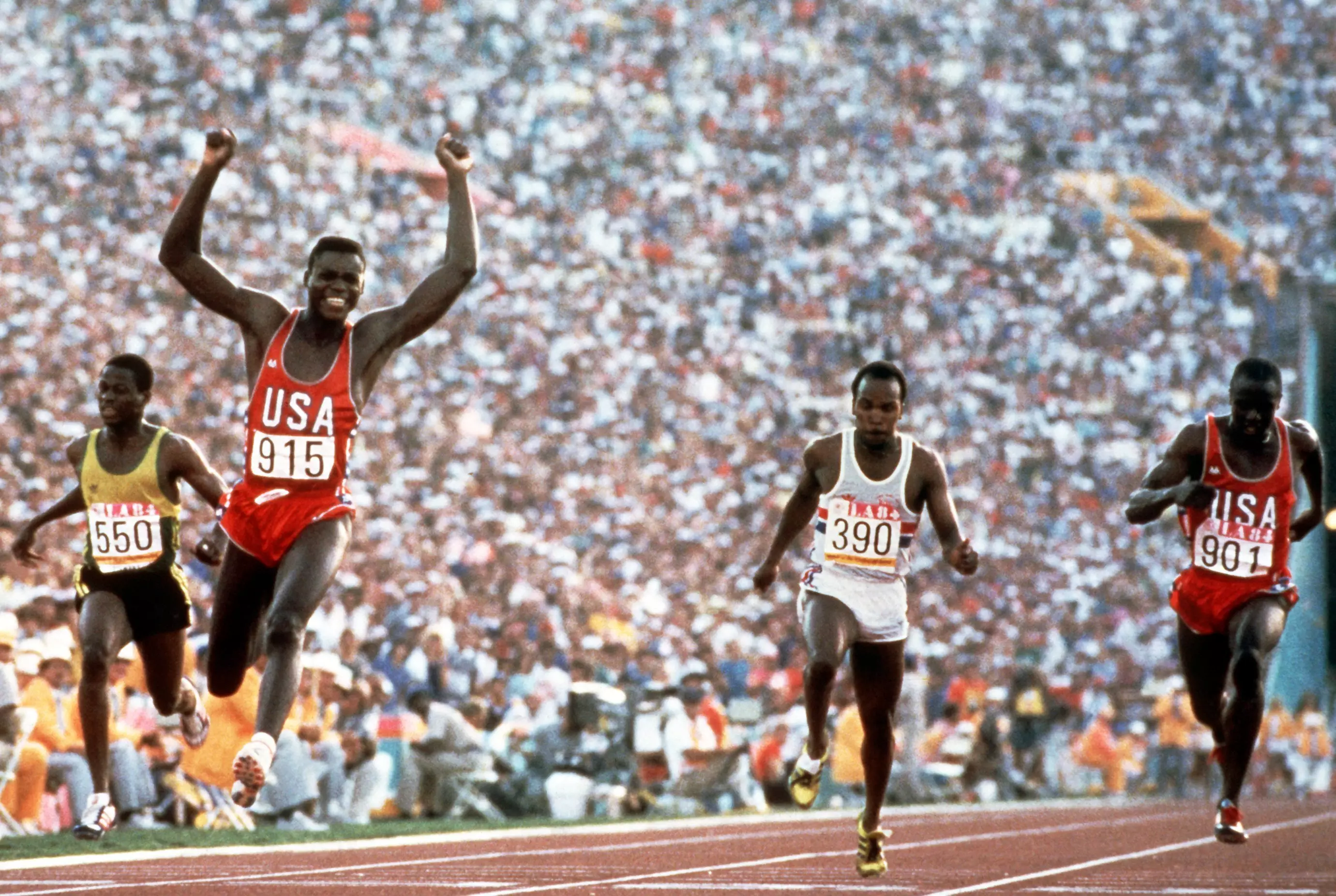
By Ryan Rosendale
With every Olympic Games, moments are born that go down in history.
For every triumph and heroic victory, there are also the moments that stand the test of time for their shock and sheer awe.
Advert
Here, we take a look back at ten of the most shocking moments in Olympic history, both good and bad.
READ MORE:
LATEST: Six Polish Swimmers Sent Home After Heartbreaking Admin Error
ULTIMATE GUIDE: Everything You Need To Know About The Tokyo Olympics
Advert
AUSTRALIAN TEAM: Liz Cambage Withdraws From Olympics Citing 'Mental Health' Battle
10. Paula Radcliffe fails to finish in Athens - 2004 Athens Olympic Games
Coming into the Athens Games in 2004, the world record holder Paula Radcliffe was the hot favourite to take gold in the marathon event. Things didn't go according to plan however when Radcliffe was forced to retire from the race just 36km in. A leg injury suffered just two weeks before the race cause Radcliffe to use a high dose of anti-inflammatory drugs which had an effect on her food absorption and was the main reason cited in her dropping out of the marathon. The long-distance runner would return to the Games in 2008 to finish the marathon in 23rd place.
Advert
09. Boris Onishchenko's Cheating Scandal - 1976 Montreal Olympic Games
One of the Games most famous cheating incidents occurred at the 21st edition when Soviet Union pentathlete Boris Onishchenko was discovered to have doctored his fencing sword (epee), allowing him to score points without actually making a legal touch. After being found out by fellow competitors and officials, Onishchenko was disqualified and sent home with the disgraced athlete yet to publicly talk about the events to this very day.

08. Birgit Fischer wins eighth gold... 24 years after her first - 2004 Athens Olympic Games
Advert
One of Germany's greatest Olympians, Birgit Fischer was a canoeing prodigy who became both the youngest-and-oldest Olympic champion when she won her first gold at 18 in the 1980 Moscow Games before coming out of retirement for the 2004 Athens Games at 42 years-old to win gold in the K-4 500m race. In total, Fischer won eight gold and three silver medals across six Olympics.
07. 'Blood in the Water' Match - 1956 Melbourne Olympic Games
With tensions between Hungary and the Soviet Union already simmering prior to the 1956 Games, things boiled over during a water polo match that saw Hungarian player Ervin Zador draw blood as players began to throw punches in the final minutes of the game. The spout forced officials to end the game with Hungary declared victors 4-0. They would eventually go onto claim gold with Zador missing the match against Yugoslavia because of the injury.

06. Olga Korbut's heroics cause controversy - 1972 Munich Games
Advert
Olga Korbut's heroic efforts in Munich saw the Soviet athlete win three gold medals in gymnastics but Korbut is mainly remembered today for pulling off a move that would become known as 'the Korbut flip'. The move, performed on the uneven bars, saw Korbut stand on the high bar, doing a back flip and then re-grasping the bar. It was something never seen before in the sport with the move later banned due to the danger in performing it.
05. Marion Jones erased from the history books - 2000 Sydney Olympic Games
American born Marion Jones made history at the 2000 Games when she became the first female track and field athlete to win five medals at the same games. Claiming three gold and two bronze, Jones' history making efforts would later be removed from the record books when she was found guilty of doping during the competition and stripped of her medals. She later pleaded guilty to lying to federal agents about her use of performance-enhancing drugs and was sentenced to six-months prison.

04. Carl Lewis emulates the heroics of Jesse Owens - 1984 Los Angeles Olympic Games
48 years after the heroics of Jesse Owens in Berlin, fellow American Carl Lewis headed into his home Olympics a realistic chance of winning every event he competed in, yet many were unsure if history could repeat itself. The track athlete rose to the occasion and after winning gold in the 100m sprint, Lewis went on to claim the top medal in the long jump, 200m sprint and the 4x100m relay. While Lewis did create controversy along the way, it is a feat still remembered 37 years later.
03. Pressured officials deny Roy Jones Jr. gold. - 1988 Seoul Olympic Games
In the boxing final of the 1988 Games, American Roy Jones Jr. was clearly seen by many as the winner of the bout over South Korean Park Si-Hun. So when officials declared Si-Hun the winner, outraged ensued. Jones Jr. had landed a whopping 86 punches to Si-Hun's 32 across the three rounds. The difference in shots clearly proved Jones Jr. controlled the fight, but it was later revealed by the officials that they felt pressured to award Si-Hun gold after being wined and dined by South Korean officials.

02. Ben Johnson wins gold before testing positive - 1988 Seoul Olympic Games
The 100m final at the Seoul Olympics might go down as the most infamous race in Games history given six of the eight finalists have been implicated in doping at some point in their career but it was Canadian sprinter Ben Johnson who became the race's biggest villain. After winning the event and lowering his own world record to 9.79 seconds, Johnson's urine test was found to contain stanozolol and he was later disqualified. Johnson would return to the Olympic stage in 1992 but would fail to make the 100m final, finishing last in his semi-final heat.
01. Munich Massacre - 1972 Munich Olympic Games
In what is remembered as the Game's most harrowing moment, the 1972 edition was largely overshadowed by a terrorist attack on the Olympic Village. Just over a week into the Games on September 5, a group of eight members of the Palestinian Black September terrorist organisation took eleven Israeli team members hostage. All eleven members were eventually murdered while all but three of the terrorists were killed by German authorities. It remains one of the darkest days in Olympic Games history and arguably the most shocking despite not taking place within a competition.
Featured Image Credit: PATopics: olympics, olympic games, Tokyo Olympics, Australia